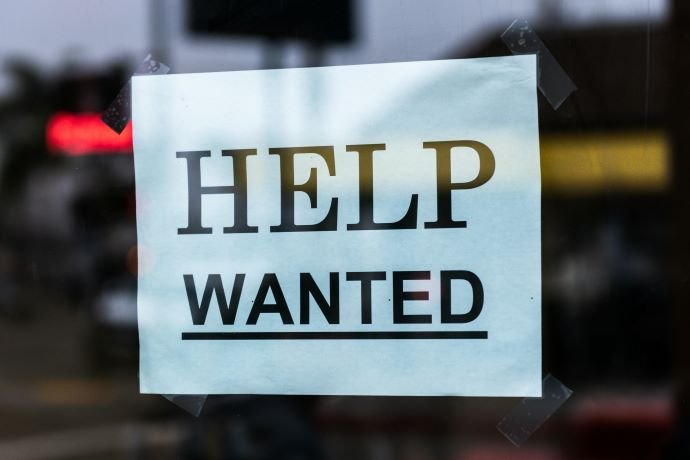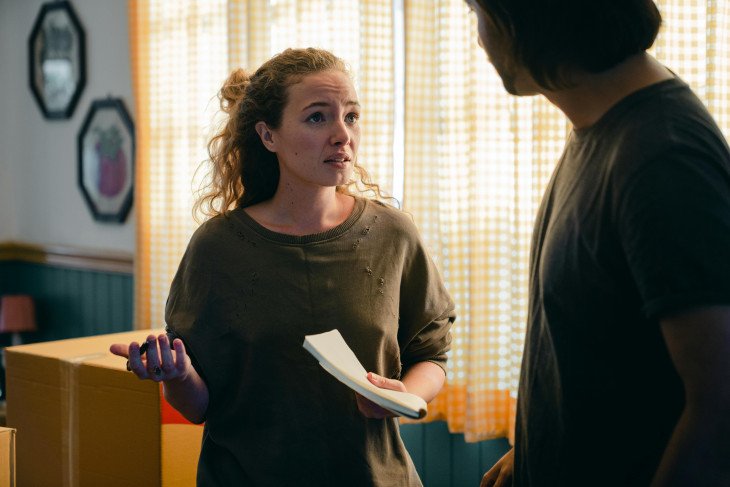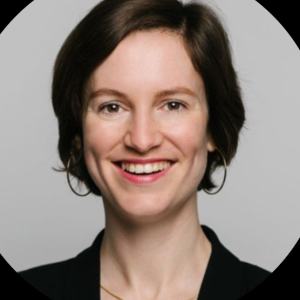FutuRes Qualitative Scenarios
What can I find here?
The following are eight possible futures of Europe, centered around the continent's population development. These scenarios are based on sound research data which were connected narratively by policymakers and other experts.
Science has no way of saying which of these scenarios will come true. This depends largely on the decision-making of today.
However, there are ways to indicate how to make certain scenarios less likely, and also how to react should they happen.
What is Qualitative Scenario Building?
Qualitative Scenario Building is a foresight approach that turns data projections into narratives about the future. Scenarios are plausible stories rather than predictions, and can be used to support policy-planning.
Qualitative Scenario Building has become a central tool at the EU level and worldwide. Policymakers can use these eight scenarios to stress-test their policy planning or to identify potential areas for improvement.
How were the FutuRes Scenarios developed?
In September 2024, FutuRes hosted Scenario Building workshops led by the team at VDI/VDE Innovation & Technology. Thirty-one experts from research, civil society, and policy joined from all over Europe to identify plausible futures at the European level.
They did so along a matrix created based on FutuRes data projections. Prior to this, the FutuRes research teams had identified the strongest driving factors for future developments around population policy. These driving factors became the basis on which the workshop participants would create their scenarios.
The condensed versions of these scenarios are on this site. They can be tools for designing policy strategies that respond to demographic change, or for the formulation of policy recommendations to support resilience.
More about the method and how the Futures Scenarios were made is laid out in the report.
In this scenario of Europe’s future, immigration is managed by European states in an orderly way; businesses and policy work together to make best use of digital technologies in the labor market and social life; diversity and tolerance are upheld as European cultural values, family policies support parents’ choices
#resilient #inclusive #innovative

Europe navigates rising immigration through inclusive policies and enhanced labour access, fostering a thriving middle class and supporting vulnerable groups. However, political tensions persist, with right-wing parties demanding immigration limits and ideological differences shaping society.
The economy thrives on green and digital innovation, driving technological sovereignty and growth. Advances in AI, automation, and digitalisation boost efficiency, creating jobs and enabling shorter work hours. Prosperity grows, supported by fair productivity gains and pension reforms offering flexible, personalised options.
Families increasingly depend on technology to balance work and family life, a trend that mirrors broader societal changes. Gender equality sees progress as men and women share caregiving duties more equally, supported by automation and innovative tools. However, gaps in access to resources persist, underscoring the need for stronger systemic support to ensure inclusivity and fairness.
Click to read the full scenario "Thriving Democracy" in the FutuRes Foresight Document.

Europe addresses demographic shifts with a sustainable immigration strategy, combining targeted policies, integration programs, and improved labour market access. This fosters social cohesion and reduces tensions that once fueled antidemocratic movements. Democratic institutions regain credibility, citizen participation increases, and populist parties lose influence.
The green and digital revolutions drive economic transformation. Strategic migration fills skill gaps, fueling sustainable growth. Flexible work models, digital tools, and lifelong learning enhance Europe’s competitiveness while productivity gains create new opportunities. However, low fertility rates persist, challenging welfare systems and social infrastructure.
Flexible pensions and private savings complement state schemes, yet inequalities remain. Migration enriches Europe’s diversity and nurtures tolerance, but caregiving responsibilities remain unequally distributed. Despite advancements in recognising care work, structural disparities persist, shaping families’ access to resources and support.
Click to read the full scenario "Institutional Democracy" in the FutuRes Foresight Document.

There is increased unsafe and irregular immigration to Europe, overwhelming integration capacities and destabilizing societies. Climate change worsens socio-economic inequalities, disproportionately impacting low-income populations and heightening vulnerabilities. Migration management struggles with climate-change related displacement in Europe, fueling inequality and social tension. Far-right movements exploit fears, leading to rising polarization and conflicts. Despite this, moments of solidarity and democratic values occasionally counteract populist forces.
The green and digital transitions spur economic growth but remain uneven, with some sectors advancing while others stagnate. Structural issues, skill mismatches, and restrictive immigration policies hinder productivity and fail to address labour shortages, particularly in essential industries. Aging populations strain public pension systems, while inadequate support and integration of migrants worsens disparities in welfare access.
Family policies stagnate, leaving care burdens to private households. Cultural shifts foster diverse family forms and gender equality advances, but progress remains uneven, with persistent social and political barriers deepening inequality.
Click to read the full scenario "Stagnant Stratification" in the FutuRes Foresight Document.
This future is an alternative version of scenario 3 (“Stagnant Stratification”). Europe experiences a decline in immigration due to restrictive policies, economic factors, or international developments that reduce its attractiveness.
In light of this, the economic outlook is marked by cyclical downturns, including recessions, reduced investment, and weakened competitiveness. The collapse of the pension system is prevented by a growing net debt of the member states. However, in this context, the EU debt rules become unrealistic and obsolete. The resulting austerity measures and cautious consumer behaviour further hinder recovery, leading to uneven productivity growth where technological advances drive efficiency in some sectors, while structural barriers, such as inefficient labor markets, cause stagnation in others.
The lack of family friendly policies and social integration measures leads to a great individualisation in the organisation of social life. Defined gender roles become increasingly equal – and in some cases, disappear –, as shown by a fair labor distribution between women and men on the formal job market for instance. However, informal care work increases due to a lack of informal/formal household support within communities, the stagnating family policies as well limited state funding, placing greater strain on families.

Europe’s political landscape is deeply divided, with opposing parties pursuing conflicting agendas. While liberal policies focus on more open migration policies and climate justice, social policies like family care and gender equality are neglected, reinforcing inequalities. Proactive immigration policies improve labour market access through well-funded integration programs like language courses and vocational training. Cities play a crucial role, supported by networks for knowledge sharing.
Climate justice policies address inequalities with measures such as renovating social housing, expanding green spaces, and funding climate-friendly mobility. However, the lack of state support for family care burdens women disproportionately, worsening social divides. High-income families benefit from flexible pensions, while lower-income groups face structural disadvantages.
Political gridlock, outdated infrastructure, inefficient labour markets, and unfilled labour shortages—especially in healthcare, IT, and skilled trades—hamper productivity. Fragmented digital strategies and declining birth rates further weaken Europe’s innovation, competitiveness, and geopolitical influence.
Click to read the full scenario "Antagonistic Politics" in the FutuRes Foresight Document.

Europe’s political landscape has shifted, with pressing 21st-century challenges like climate justice and digitalisation now prioritised. Programs addressing climate protection and adaptation drive economic growth, spurred by the Green Deal and Net Zero Industry Act. The dual green and digital transformation boosts productivity, competitiveness, and technological sovereignty, while flexible work models and lifelong learning enable greater labor force participation and inclusion.
Social integration flourishes, with diverse family structures like single-parent and queer/LGBTQIA+ families widely accepted. However, stagnation in gender equality policies leaves women disproportionately burdened with part-time work and caregiving, perpetuating low fertility rates and straining pension systems.
Despite progress in economic and technological areas, social policies addressing daily life challenges are overlooked, reinforcing inequalities. Political divisions between democratic and anti-democratic forces result in fragmented, one-size-fits-all policies. This paralysis undermines reforms and limits Europe’s ability to address social divides effectively.
Click to read the full scenario "Lowest Common Denominator" in the FutuRes Foresight Document.

In this scenario, anti-democratic forces dominate many European governments, with populist parties prioritising nationalism, protectionism, and anti-immigration policies. Economic and societal challenges remain unresolved, as short-term political gains overshadow solution-oriented strategies. Europe faces prolonged recession, declining investment, and a loss of global competitiveness. Infrastructure deteriorates, digitalisation lags, and labour markets suffer from high unemployment and skill shortages, leading to a brain drain and economic stagnation.
Restrictive immigration policies and declining birth rates accelerate population aging, worsening labour shortages in critical industries. Family policies stagnate, public pension systems strain, and informal caregiving burdens increase, particularly for women, reversing gender equality progress. Social inequality deepens, with rising intolerance and exclusion.
Climate inaction exacerbates socio-economic inequalities, leaving vulnerable groups exposed to extreme weather and economic hardship. Political restrictions on press freedom and civil society rights further erode democracy, undermining public trust and threatening Europe’s democratic foundations.
Click to read the full scenario "Short Term Politics" in the FutuRes Foresight Document.

Europe faces rising fertility rates, a growing immigrant population, and economic stagnation. While high birth rates sustain social infrastructure, overstretched systems, segregated migrant communities, and economic downturns challenge European societies‘ resilience. Populist parties, driven by restrictive migration policies and traditional values, have gained power. Automation displaces low-wage workers, particularly migrants, while labour markets remain inefficient. Social inclusion policies fail, public pension systems strain, and gender inequality worsens.
Traditional family models and conservative values dominate, marginalising non-traditional families and excluding women from decision-making. Women bear the brunt of unpaid care work and are pushed out of the labour market. Stagnant family policies exacerbate class-based inequalities, with older people particularly vulnerable to poverty. Public austerity measures reduce investment, further weakening Europe's competitiveness.
Climate policies have regressed, worsening the impacts of climate change. Press freedom and civil rights are curtailed, threatening democracy. Europe faces deep social divisions, rising intolerance, and exclusion. Future progress depends on reversing these trends toward inclusion and sustainability.
Click to read the full scenario "Burden on Future Generations" in the FutuRes Foresight Document.






